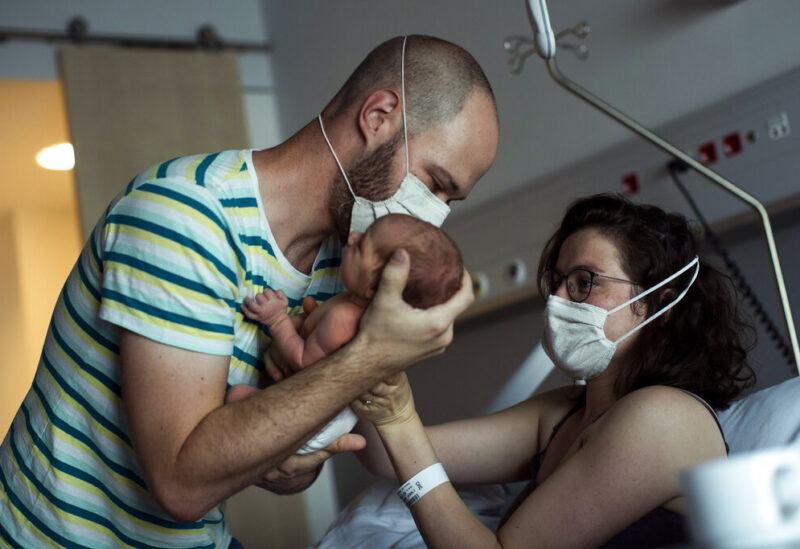
Babies of newly inoculated nursing moms receive antibody-packed milk for at least 6 weeks, new Israeli research has revealed.
Doctors at Shamir Medical Center near Tel Aviv collected milk samples from 84 mothers before inoculation against the coronavirus. Then, two weeks after the first jab, they started a course of 6 weekly samples, and found antibodies that weren’t previously there.
“The study is very encouraging, as it shows that there are lots of antibodies in the milk, and they stay for weeks,” the lead researcher Dr. Sivan Perl told The Times of Israel.
Previous studies have signaled the presence of antibodies, but this one, newly peer-reviewed and published in AMA: The Journal of the American Medical Association, is notable for showing that they remain for a long period.
The protection passed from mother to child only lasts so long as the baby is drinking milk, and fades once it stops.
The study ended after 6 weeks, but Perl said she believes it shows that antibodies may well remain present far beyond that timeframe. She herself is still breastfeeding her child, who is almost 3, in the hope that they do.
Perl’s research is considered notable for the number of subjects as well as its observation on antibody longevity — involving 8 times the number of women who took part in an earlier Israeli study which pointed to the existence of antibodies, and almost five times the participants and many times the samples of a similarly optimistic University of Rochester Medical Center study funded by the Bill and Melinda Gates Foundation.
Perl said that analyzed alongside a separate study on breastmilk by American researchers, hers is cause for optimism. While it’s not known for certain whether breast milk with COVID-fighting antibodies provides immunity to babies, a recent peer-reviewed study in the U.S. found that antibody-positive milk can neutralize COVID-19 in test tubes.
The American researchers reported, after collecting 18 samples from mothers who had recovered from the virus, that “62 percent of the milk samples were able to neutralize SARS-CoV-2 infectivity in vitro, whereas milk samples collected prior to the COVID-19 pandemic were unable to do so.”
“We showed there are lots of antibodies that stay in breast milk, and they showed there is neutralization of virus in vitro, which may well suggest that breast milk gives immunity to babies,” Perl commented.
In her study, which involved collaboration with Ben-Gurion University of the Negev, milk samples were collected before administration of the vaccine and then once weekly for 6 weeks, starting at week 2 after the first jab.
“We found high levels of antibodies in the breast milk, both Immunoglobulin G and Immunoglobulin A, which have different protective mechanisms,” she added.
The study showed they were present in significant quantities throughout the 6-week study.
Perl said that she had actually started studying inoculated mothers with a far less ambitious research objective: to probe whether COVID-19 vaccines given in Israel, sourced from Pfizer, have any adverse effects on breastfeeding moms like her.
“I began the study because I myself was breastfeeding and there was initially such fear of vaccinations by people who were breastfeeding that I wanted to offer scientific insight,” she noted. “In a sense, the most important part of the study is that among 84 babies who were breastfed by vaccinated mothers there were no adverse events at all. This is important given there was a lot of fear and suspicion among nursing moms.”
Separate Israel research published last month suggested that babies born to moms who are already inoculated may have immunity. A team at Hadassah Medical Center in Jerusalem checked blood from the umbilical cords of 40 newborns, which is identical to the baby’s blood, and found that all had a strong supply of antibodies — just like their mothers who had been vaccinated with the Pfizer-BioNTech doses.